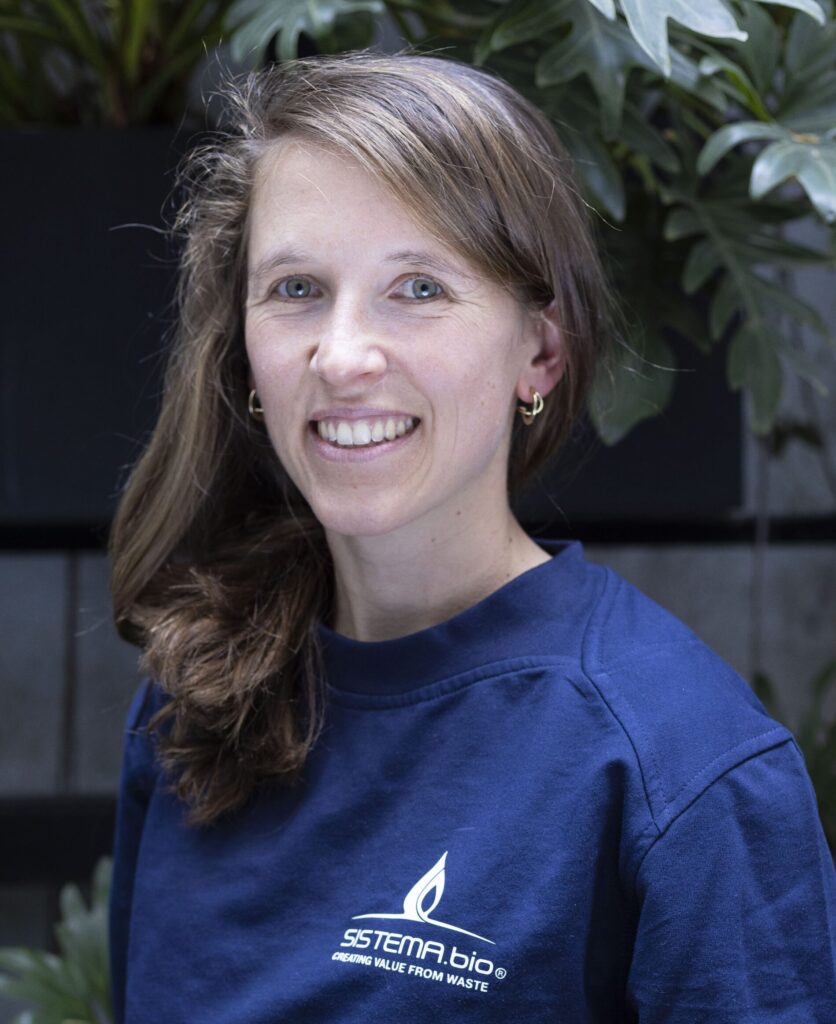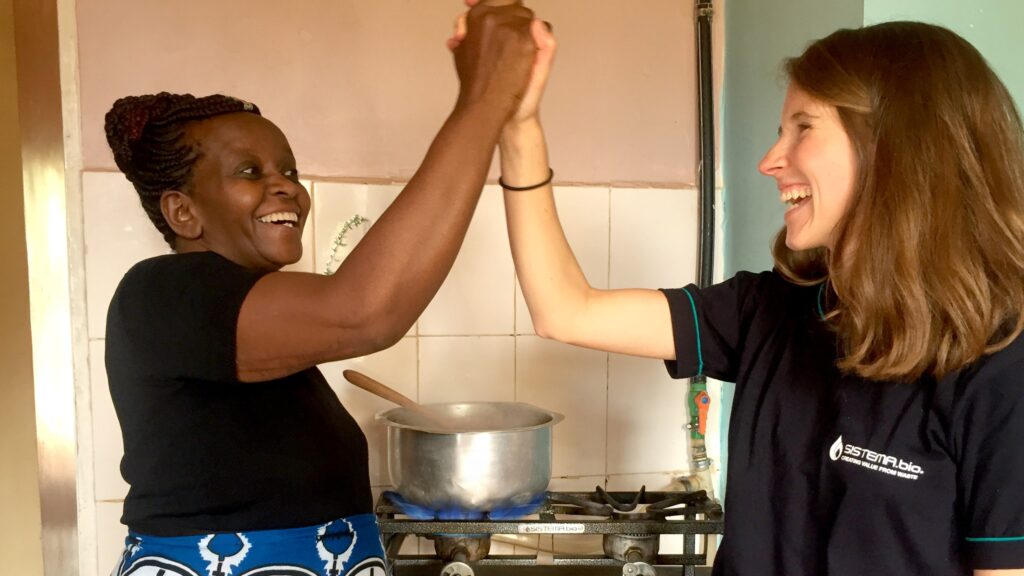Helping Farmers Worldwide Access a Climate-smart Solution for Cooking
 Esther Altorfer is the Chief Strategy Officer at Sistema.bio, a social enterprise specializing in producing biogas digesters and training people on how to use them. Altorfer is in charge of driving growth and expanding the organizational base from its Mexico headquarters to new offices in Central America, East Africa, and India.
Esther Altorfer is the Chief Strategy Officer at Sistema.bio, a social enterprise specializing in producing biogas digesters and training people on how to use them. Altorfer is in charge of driving growth and expanding the organizational base from its Mexico headquarters to new offices in Central America, East Africa, and India.
The Clean Cooking Alliance (CCA) spoke to Altorfer about the importance of biogas as a cooking fuel and its role in empowering women.
This story is part of a series showcasing women leaders in the clean cooking sector.
“My parents practiced ‘service to others’ as a core value in our family. Learning from them, I felt the urge to fight against inequalities and poverty, ever since childhood,” shared Esther Altorer. “Now, the urgency to empower women, restore biodiversity, nourish soil, and provide climate-smart solutions to farmers is what I think about and work for every day.”
When she interviewed for a job with Sistema.bio nine years ago, Altorfer thought she was signing up for a regular job. It turned out to be her true calling.
“I was blown away by the combination of Sistema.bio’s focus on clean energy, smallholder farming, women’s empowerment, and innovative financing. I thought this was my key to making the world a better place,” Altorfer explained. “The holistic approach to a farm, a family, the breadth and depth of impacts, the company’s focus on a circular economy, and the transformation of waste into resource were all music to my ears. My passion and commitment have not wavered over the years.”

Sistema.bio is at the nexus of clean cooking, food security, climate change, access to finance, and women’s empowerment. By providing access to biogas, a clean cooking fuel, Sistema.bio enables women to grow their businesses sustainably, save their precious time, improve their well-being and that of their families, and invest in their futures.
On a visit to Kiambu county in Kenya, Altorfer met Marie, a farmer who would spend considerable time each day milking her cows at 4 a.m. and going to the local cooperative to sell the milk, hoping it would be enough to afford cooking gas (LPG) or fertilizer—but it rarely was. Then, Marie would spend hours looking for firewood and carrying it home to cook for her family.
“When I first visited Marie in her kitchen, it was so smoky that my eyes started to tear up, and my throat swelled with coughing,” recalled Altorfer. “Seeing me struggle, Marie laughed and put her hands in the fire to adjust the firewood. ‘This is my everyday life,’ she told me.”
[ Read past entries in CCA’s Women Energizing Change Series. ]
At Sistema.bio, Altofer’s work helps women like Marie cook in a smoke-free kitchen, saving them time and improving their health by installing biogas systems. Using its prefabricated modular biodigesters, Sistema.bio utilizes organic waste, particularly animal and human excreta, to produce fertilizer and biogas.
Since biogas’ production and combustion are entirely non-polluting, it is considered a clean fuel for cooking. To date, Sistema.bio has installed over 80,000 biodigesters globally, impacting nearly half a million lives. “This is just the beginning, and our goal is to have over 250,000 biodigesters installed by the end of 2025,” Altorfer said.

Despite biogas’s apparent benefits as a clean cooking fuel, Altorfer believes governments need to do much more to make biogas access easier for consumers and enterprises. “Governments can support the proliferation of biogas by creating a favorable business environment. For example, implementing import tariffs and VAT exemptions in Kenya has reduced our operating costs and enabled us to maintain an end price for farmers that is lower than in other countries. Governments can also create awareness about indoor air pollution in a technology-agnostic way, which ultimately promotes clean cooking solutions,” Altorfer suggested.
Emboldened by the Paris Agreement, which allows countries to sign bilateral agreements to export carbon credits, Altorfer is hopeful that governments in the Global North will play a more critical role in reducing their emissions while financing biogas in the Global South. “With permanent emissions reductions and the smallest units avoiding more than 8 tons of carbon dioxide emissions per year, Sistema.bio is one of the highest quality carbon investments that can be made,” Altorfer declared.
However, only sustained financing into the clean cooking sector makes any of this possible.
“We can’t repeat it enough: patient and affordable capital in all forms is needed to scale impactful businesses with strong unit economics and a proven track record,” Altorfer said. This year, Sistema.bio launched the first-ever Clean Impact Bond, with support from the International Finance Cooperation, to mobilize financing for clean cooking, which can help achieve Sustainable Development Goals 3 and 5 (related to health and gender, respectively).
A passionate advocate for women’s empowerment and representation in the clean energy sector, Altorfer is determined to attract, hire, grow, and retain women in all departments of Sistema.bio. “We have increasingly more women working in technical roles as engineers or technicians, whether in our Research and Development team in India or the Technical Operations teams in Kenya and Uganda,” she said. “My advice to girls and women considering careers in social enterprises is to go for it! It is gratifying to work in companies that prioritize people and the planet. Be bold, be curious, and be persistent.”
